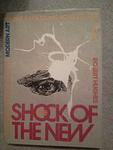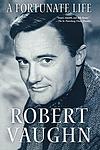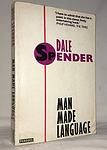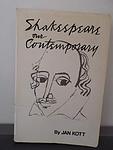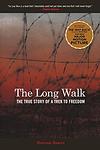The Greatest Polish, Australian "Nonfiction" Books Since 1900
Click to learn how this list is calculated.
This list represents a comprehensive and trusted collection of the greatest books. Developed through a specialized algorithm, it brings together 300 'best of' book lists to form a definitive guide to the world's most acclaimed books. For those interested in how these books are chosen, additional details can be found on the rankings page.
Genres
Countries
Date Range
Reading Statistics
Click the button below to see how many of these books you've read!
Download
If you're interested in downloading this list as a CSV file for use in a spreadsheet application, you can easily do so by clicking the button below. Please note that to ensure a manageable file size and faster download, the CSV will include details for only the first 500 books.
Download-
1. Schindler's List by Thomas Keneally
The book tells the true story of a German businessman who saves more than a thousand Polish Jews during the Holocaust by employing them in his factories. The protagonist's transformation from a greedy high living war profiteer to a savior of lives forms the crux of the narrative. It offers a chilling yet inspiring account of the horrors of the Holocaust, human resilience, and the power of one individual to make a significant difference.
-
2. The Female Eunuch by Germaine Greer
This book is a seminal feminist text that explores the oppression of women in society. It critiques the traditional roles and expectations of women in the mid-20th century, arguing that societal norms and conventions force women into a secondary, submissive role, effectively castrating them. The book encourages women to reject these norms and to embrace their own sexual liberation, arguing for the need for a revolution in the way women perceive themselves and their place in society.
-
3. The Captive Mind by Czesław Miłosz
"The Captive Mind" is a thought-provoking exploration of the intellectual and moral dilemmas faced by artists and intellectuals living under oppressive regimes. Through a series of powerful and insightful essays, the author delves into the psychological and ideological transformations experienced by individuals who compromise their values and conform to the demands of totalitarianism. With a blend of personal anecdotes, historical analysis, and philosophical reflections, this book offers a profound examination of the complexities of intellectual freedom and the power of ideology.
-
4. Schindler's Ark by Thomas Keneally
The book is a historical novel based on the true story of a German industrialist who becomes an unlikely humanitarian amid the barbaric Nazi reign. When he witnesses the horrors inflicted upon the Jews, he is moved to save as many as he can by employing them in his factory. His actions, driven by courage and compassion, lead to the salvation of over a thousand Jewish workers from certain death in the Holocaust. The narrative explores themes of morality, survival, and the capacity for good in the face of overwhelming evil, as the protagonist navigates the complexities of war and the human spirit.
-
5. The Road from Coorain by Jill Ker Conway
"The Road from Coorain" is a memoir that chronicles the author's journey from her childhood on a remote sheep station in Australia, through her adolescence in war-ravaged Sydney, and finally, to her departure for America. The narrative explores themes of self-discovery, gender roles, and the power of education while providing a vivid portrayal of life in the Australian outback. The memoir also delves into the author's complex relationship with her mother and the impact of her father's death on their family.
-
6. The Shock of the New by Robert Hughes
"The Shock of the New" is an insightful exploration of modern art from the late 19th century to the present day. The book examines the cultural, social, and political forces that shaped and influenced the development of various art movements such as Cubism, Futurism, Surrealism, and Pop Art. It also provides an in-depth analysis of the works of prominent artists who played pivotal roles in these movements. The book serves as a comprehensive guide to understanding the complexities and nuances of modern art.
-
7. A Fortunate Life by A.B. Facey
"A Fortunate Life" is a memoir that chronicles the extraordinary life of a man who overcame immense hardships and adversity to find happiness and contentment. From his humble beginnings in rural Australia to his experiences as a soldier in World War I, the author shares his remarkable journey filled with poverty, loss, and resilience. Despite facing numerous challenges, he remains optimistic and grateful for the opportunities life has presented him, ultimately proving that a fortunate life is not defined by material wealth, but by the strength of the human spirit.
-
8. Shah Of Shahs by Ryszard Kapuscinski
This book is a compelling blend of history and personal narratives, set against the backdrop of Iran's 1979 revolution. The author, a seasoned journalist, delves into the complex tapestry of Iranian society, exploring the rise and fall of the last monarch. Through a series of vignettes and interviews with Iranians from all walks of life, the narrative captures the atmosphere of fear and hope that defined the era. The work is as much an examination of the mechanics of power and the ease with which a society can be manipulated as it is a chronicle of a pivotal moment in Iran's history. The author's lyrical prose and sharp insights offer a timeless reflection on the nature of tyranny and the human struggle for freedom.
-
9. Tracks by Robyn Davidson
"Tracks" is a memoir that recounts the author's extraordinary journey across the Australian desert on camelback. The narrative provides vivid descriptions of the harsh desert landscape, the challenges faced during this nine-month, 1,700-mile trek, and the transformation of the author's personal character along the way. The book also explores her interactions with the indigenous Aboriginal people and their culture, and includes her reflections on solitude, self-discovery, and the human connection to nature.
-
10. Alchemy Of The Word by Jan Parandowski
This book is a profound exploration of the transformative power of language and literature. Through a series of essays, the author delves into the essence of storytelling, the nuances of translation, and the enduring impact of classical texts on modern writing. By examining the works of various literary giants and the myths that have shaped human culture, the narrative underscores the alchemical process through which words can transcend time, evoke emotions, and alter perceptions. It is a tribute to the written word's ability to enchant, educate, and inspire, serving as a testament to literature's role in the continuous shaping of human civilization.
-
11. Main Currents Of Marxism by Leszek Kolakowski
This comprehensive work is a critical analysis of the development and influence of Marxist thought throughout history. It delves into the origins of Marxist theory, tracing its evolution from the philosophical foundations laid by Karl Marx and Friedrich Engels, through various interpretations and schools of thought, including Leninism, Stalinism, and Trotskyism, up to its impact on political movements and intellectual debates in the 20th century. The author scrutinizes the theoretical underpinnings and practical applications of Marxism, exploring both its contributions to social science and its shortcomings, ultimately providing a thorough examination of its role in shaping modern political and economic landscapes.
-
12. Stradbroke Dreamtime by Oodgeroo Noonuccal
"Stradbroke Dreamtime" is a collection of autobiographical stories and traditional Aboriginal tales that weave together the personal experiences of an Indigenous Australian woman with the cultural heritage of her people. The book offers a window into the author's childhood on Stradbroke Island, sharing memories of family life, the natural world, and the impact of colonialism. Alongside these reflections, the work preserves a number of Dreamtime stories, which are central to Aboriginal spirituality and identity, passing on the wisdom and traditions of her ancestors through narratives that celebrate the connection between the land and its inhabitants.
-
13. The Tyranny Of Distance by Geoffrey Blainey
"The Tyranny of Distance" explores the impact of geographical isolation on Australia's history, economy, and society. Blainey delves into how the vastness of the continent has shaped the country's development, from the challenges faced by early settlers to the struggles of maintaining connections with the rest of the world. Through a comprehensive analysis, the book highlights the unique circumstances and opportunities that arise from Australia's geographical position, ultimately offering a thought-provoking perspective on the nation's past and future.
-
14. The Emperor by Ryszard Kapuscinski
"The Emperor" is a non-fiction account of the final years of Haile Selassie's reign as the Emperor of Ethiopia. It is based on interviews with his former courtiers and officials, providing a unique and intimate portrayal of a regime marked by lavishness, intrigue, and corruption. This work also explores the dramatic events leading up to the Emperor's downfall and the Ethiopian revolution.
-
15. Man Made Language by Dale Spender
The book in question explores the concept that language is not a neutral medium of communication but rather a man-made construct that reflects and perpetuates the patriarchal structure of society. It argues that the way language is used and structured inherently privileges male perspectives and marginalizes women, influencing perceptions and reinforcing gender inequalities. Through a critical examination of linguistic practices, the text challenges readers to recognize the biases embedded in everyday language and consider the implications these have on women's experiences and the broader social power dynamics.
-
16. The Literary Work Of Art by Roman Ingarden
"The Literary Work of Art" is a philosophical exploration into the ontology of literature, examining how a literary work exists as a multilayered structure, comprising of sounds, meanings, and the phenomenological experiences they evoke. The book delves into the intricacies of how these layers interact to create a dynamic and immersive aesthetic object, which is both a creation of the author and an interpretation by the reader. Through a detailed analysis, the work discusses the role of ambiguity, intentionality, and the reader's involvement in actualizing a text, offering a comprehensive framework for understanding the complexity and richness of literary art.
-
17. My Place by Sally Morgan
"My Place" is a poignant autobiographical account that traces the personal journey of an Aboriginal woman in Australia as she uncovers her family's past and her own cultural identity. Through a series of interviews and personal reflections, the narrative delves into the experiences of her mother, grandmother, and great-uncle, revealing the hidden stories of displacement, suffering, and resilience that were kept secret due to the shame and stigma associated with their Aboriginal heritage. The book is a powerful exploration of the impact of colonialism and racism on individual lives and serves as a testament to the strength of family bonds and the reclaiming of one's history and sense of self.
-
18. 89 Poems by Zbigniew Herbert
"89 Poems" is a collection of profound and thought-provoking poems that explore various themes such as history, art, nature, and the human condition. Through his exquisite use of language and vivid imagery, the author invites readers on a journey of introspection and contemplation, delving into the complexities of existence and the timeless questions that define our humanity. With each poem, "89 Poems" offers a unique perspective on life, leaving readers with a renewed appreciation for the power of poetry to illuminate the world around us.
-
19. A World Apart by Gustaw Herling-Grudziński
"A World Apart" is a powerful memoir that recounts the author's experiences as a political prisoner in a Soviet labor camp during World War II. Through vivid and harrowing descriptions, the book exposes the brutality and inhumanity of the camp system, as well as the resilience and strength of the prisoners. It serves as a haunting reminder of the atrocities committed during this dark period of history and the enduring human spirit.
-
20. Alicia by Alicia Appleman-Jurman
The book is a harrowing memoir of a young Jewish girl's survival during the Holocaust. It recounts her life from a peaceful childhood in a small Polish town to the unspeakable horrors of Nazi occupation. As her family is decimated and her world is torn apart, she becomes a courageous messenger for the Jewish resistance, risking her life to help others while on a relentless quest for survival. Her story is one of remarkable resilience, hope, and the enduring strength of the human spirit in the face of unimaginable adversity.
-
21. Imperium by Ryszard Kapuscinski
"Imperium" is a gripping account of the author's travels through the Soviet Union during the final years of its existence. With a keen eye for detail and a deep understanding of the complexities of power, the author delves into the lives of ordinary people and high-ranking officials alike, revealing the oppressive nature of the Soviet regime and the profound impact it had on the lives of its citizens. Through vivid descriptions and insightful observations, the book offers a compelling narrative that sheds light on the inner workings of a crumbling empire.
-
22. Shakespeare Our Contemporary by Jan Kott
"Shakespeare Our Contemporary" is a critical analysis that explores the relevance of Shakespeare's plays to modern society. The book argues that Shakespeare's themes are timeless and universal, delving into the ways his works address fundamental human issues and conflicts that resonate even in the contemporary world. Through a series of essays, the author examines various plays by Shakespeare, reinterpreting them through modern philosophical and psychological lenses, and demonstrating how they reflect the political and social realities of the twentieth century. The book has been influential in shaping modern interpretations of Shakespeare, particularly in the realm of theater, influencing directors and actors to approach the plays with new perspectives.
-
23. 800 Horseman by Col Stringer
The book is a historical account that pays tribute to the legendary Australian Light Horsemen, who played a crucial role during World War I, particularly in the Middle East campaign. It delves into the remarkable feats of these mounted troops, known for their exceptional horsemanship, courage, and endurance. The narrative celebrates their most famous victory at the Battle of Beersheba and explores the unique bond between the horsemen and their faithful mounts, offering insights into the strategies, challenges, and the enduring legacy of these iconic figures in Australian military history.
-
24. The Fatal Shore by Robert Hughes
"The Fatal Shore" provides an expansive and detailed historical account of the colonization of Australia by the British Empire, focusing particularly on the transportation of convicts to the penal colonies established there in the 18th and 19th centuries. The book delves into the harsh realities and brutal conditions faced by the convicts, as well as the broader social, political, and economic ramifications of establishing a colony on the other side of the world. Through compelling narratives and meticulous research, it explores the transformation of Australia from a penal colony to a nation, examining the impact on both the indigenous populations and the settlers.
-
25. The Long Walk by Slavomir Rawicz
"The Long Walk" is a harrowing narrative of a group of prisoners who escape from a Siberian gulag during World War II, and undertake a treacherous journey through the harsh Siberian wilderness, the Gobi desert, the Himalayas, and finally to India. The story is based on the author's own experiences and portrays the indomitable human spirit, survival against all odds, camaraderie, and the will to freedom.
Reading Statistics
Click the button below to see how many of these books you've read!
Download
If you're interested in downloading this list as a CSV file for use in a spreadsheet application, you can easily do so by clicking the button below. Please note that to ensure a manageable file size and faster download, the CSV will include details for only the first 500 books.
Download




